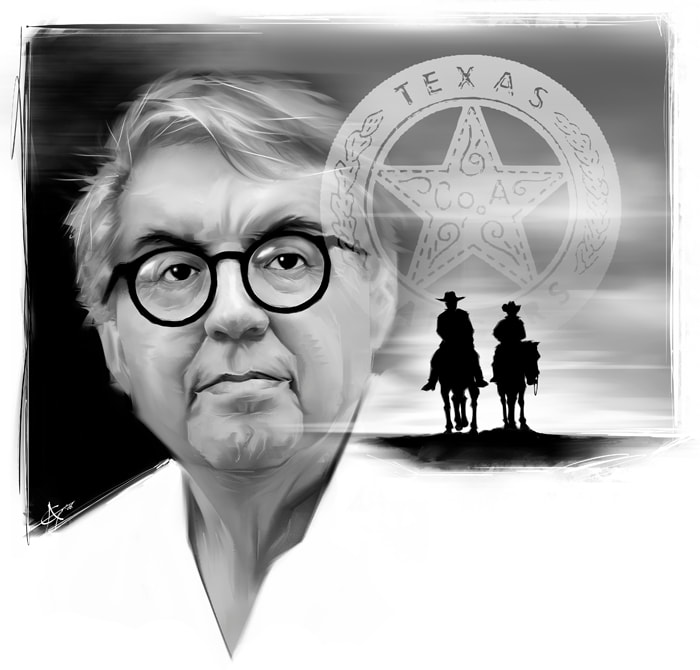|
|
Texas writers John Graves and Larry McMurtry were the subjects of the essay "John Graves, Larry McMurtry, and the Nature of Goodbyes," the lead essay of the 100th anniversary edition of Southwest Review. It is available on JSTOR (linked at McMurtry photo), a digital library of academic books and journals.
Left: Photo of John Graves, author of Goodbye to a River "John Graves, Larry McMurtry, and the Nature of Goodbyes"...
No Archives |
